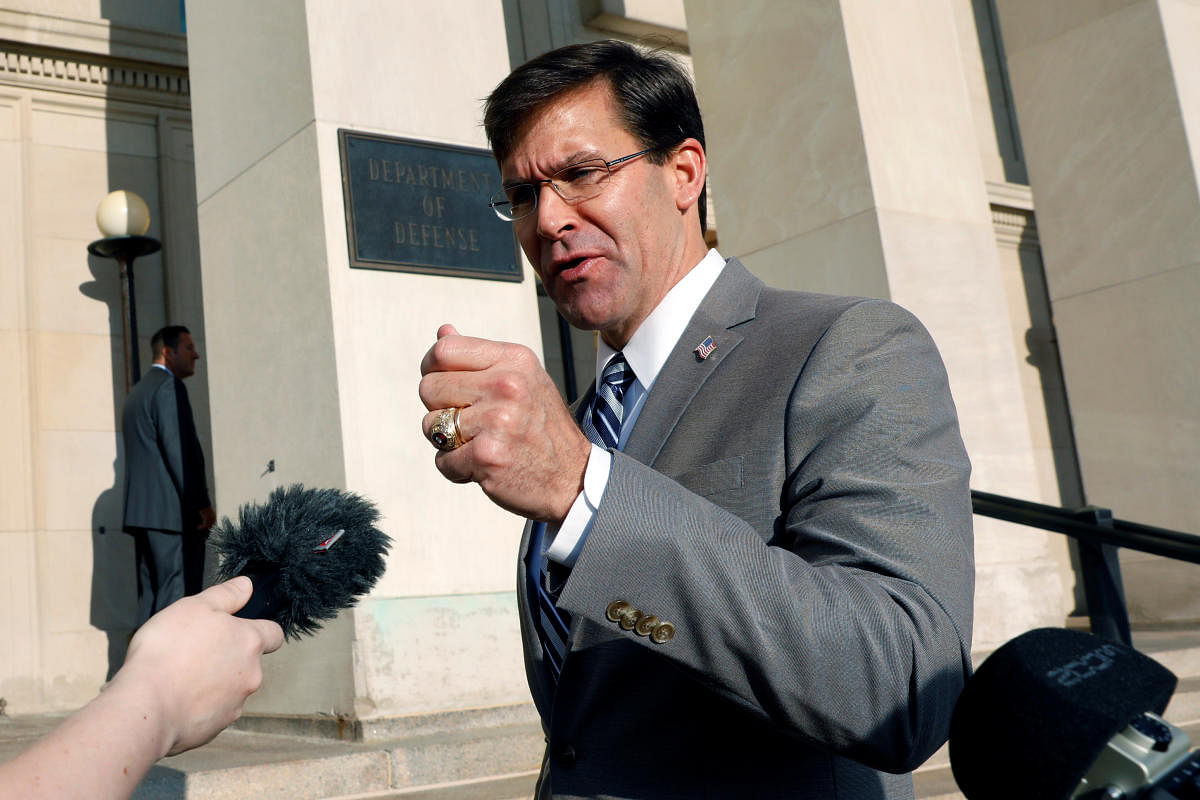
Effectively addressing the challenge posed by Iran and ensuring freedom of navigation in the Persian Gulf and the Strait of Hormuz are some of the top priorities identified by new US Defense Secretary Mark Esper.
"One is maintaining freedom of navigation in the Strait, of course, the Persian Gulf and the Gulf of Oman, and then, secondly, is deterring provocative actions from Iran," Esper told reporters at the Pentagon on his first working day as Defense Secretary.
Esper was confirmed by the United States Senate on Tuesday and sworn-in as the Pentagon chief by President Donald Trump later in the evening. He replaces Gen. (retd) Jim Mattis, who resigned last year. The post had been lying vacant for the past seven months.
A former executive from Raytheon, Esper (55) is travelling to the CENTCOM headquarters in Florida next week. The US, he said would be coordinating with the Europeans in the region.
"It's all sending the same messages we are trying to send. That is freedom of navigation and no provocative acts in the Strait, and we have seen provocative acts obviously in the last, what, week or two since the first shoot-down of our drone," he said in response to a question.
Most countries transiting through the Strait, he observed, should have an interest in freedom of navigation and should want to participate and provide some type of forces to ensure navigation of the Strait, freedom of the seas and to deter provocative behaviour.
"You plan to escort ships. Is that what you envision this being?", Esper was asked.
"You see it happening already. The Brits are trying to escort their ships, we will escort our ships to the degree that the risk demands it, right? And I assume that other countries will escort their ships," he said.
Esper added that the US will maintain constant surveillance in the Gulf, both by air and by sea.
"I am just saying that this is one of the things I want to go see in CENTCOM next week to understand their concept of the operations. Again, to the degree, of course, US vessels need an escort, we will be there, we will be available to them," Esper said.